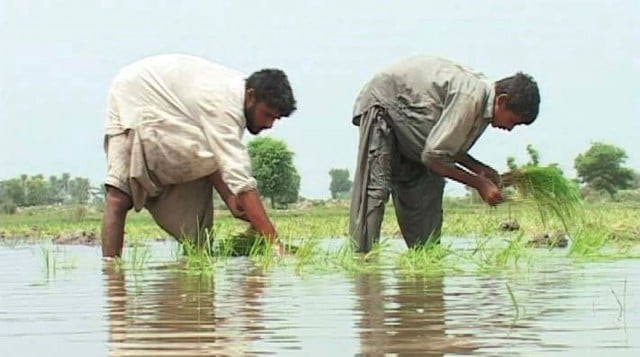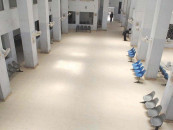Workshop highlights climate change challenges for farmers
Growers from Sujawal, Sanghar share crop losses, migration concerns

A training course was organised at the Advanced Research Water Centre of Mehran University for farmers, landowners, and local residents to discuss the impacts of climate change on communities in Sujawal and Sanghar. The session was attended by growers, landowners, and residents from both districts.
Addressing participants, Australian High Commissioner to Pakistan Neil Hawkins noted that his wife's uncle is a small farmer and that Australia also faces the impacts of climate change, with irregular rainfall patterns, droughts, and sudden flooding. "Science and technology have provided many facilities, but the real experience lies with farmers, whose knowledge is often more important than that of university professors. Your insights can help solve agricultural challenges," he said.
Farmers told the High Commissioner that extreme heat and unpredictable rainfall have badly affected crops, particularly rice cultivation, forcing many to take loans or even migrate. When asked about livestock, farmer Nazo Narejo said that goats, sheep, and cattle are also suffering due to climate stress. She added that mustard, wheat, sugarcane, and rice are the main crops in the area, and almost every household keeps eight to ten animals.
On the occasion, Mehran University Vice-Chancellor Professor Dr. Taha Hussain Ali said that the university aims to conduct research that directly addresses local problems and improves people's lives. He emphasized that with Australian government support, the university can expand work on agriculture and water resources in Sindh.
Participants also raised issues related to irrigation and drinking water shortages in Sujawal and Sanghar. The event was attended by Pro Vice-Chancellor Professor Dr. Aneel Kumar, Water Centre Director Professor Dr. Kamran Ansari, and other faculty members.























COMMENTS
Comments are moderated and generally will be posted if they are on-topic and not abusive.
For more information, please see our Comments FAQ